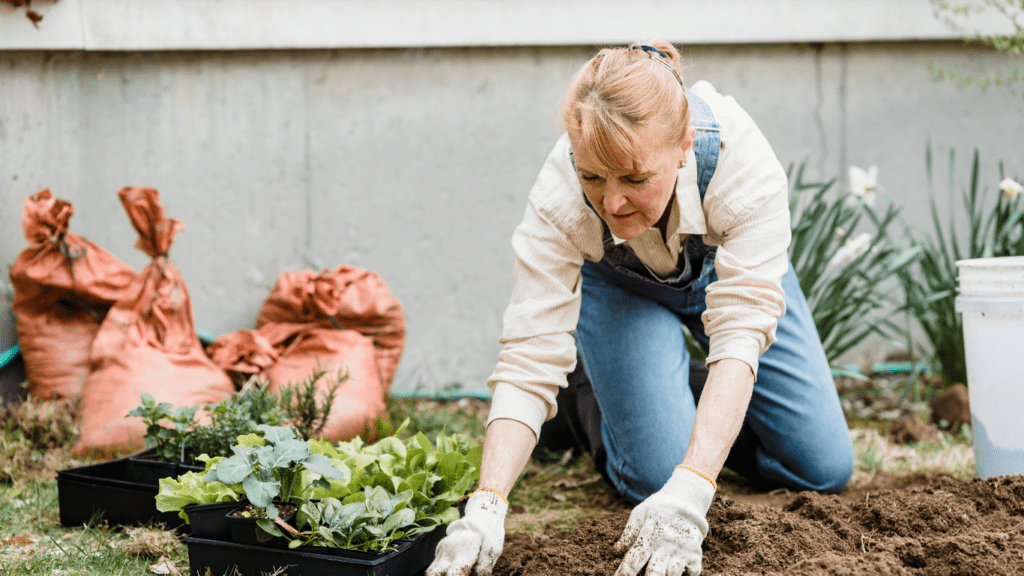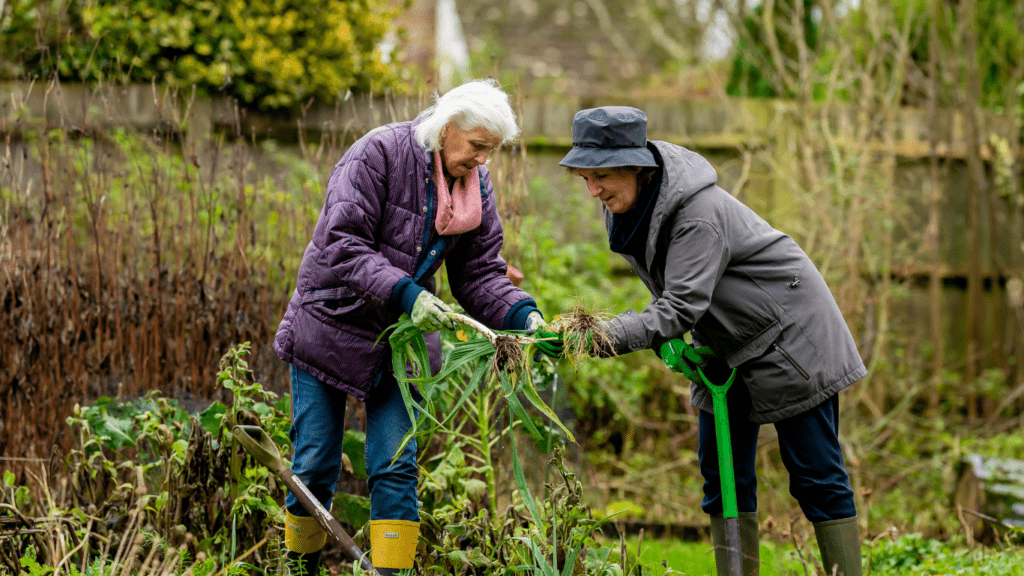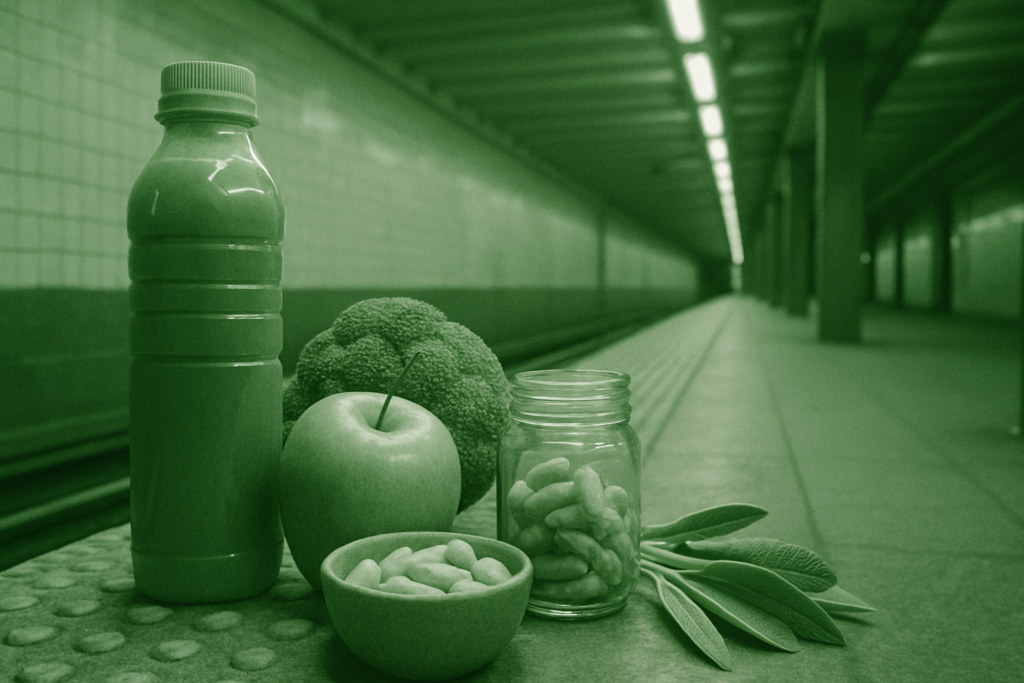Physical Benefits of Gardening
Gardening offers numerous physical benefits. From enhancing cardiovascular health to boosting immune systems, gardening can strengthen the body in various ways.
Improved Cardiovascular Health
Gardening activities improve cardiovascular health. Digging, planting, and weeding engage major muscle groups, prompting an increased heart rate and calorie burn. According to the American Heart Association, moderate gardening for 30 minutes can burn around 150 to 300 calories. Such physical activity helps lower blood pressure and reduces the risk of heart disease.
Enhanced Strength and Flexibility
Regular gardening enhances strength and flexibility. Tasks like lifting soil bags or pushing wheelbarrows build muscle strength. Bending, stretching, and kneeling improve flexibility. I’ve found that repetitive motions like raking and hoeing provide a full-body workout, comparable to a gym session.
Boosted Immune System
Gardening boosts the immune system. Exposure to sunlight increases vitamin D production, essential for bone health and immune function. Dirt contains beneficial microbes like Mycobacterium vaccae, known to enhance the immune response. In my experience, frequent gardening has led to fewer seasonal illnesses.
Mental Health Advantages
Gardening offers significant mental health benefits beyond its physical rewards. The positive effects on stress levels, mood, and cognitive function can transform one’s mental state.
Reduced Stress and Anxiety
Gardening reduces stress and anxiety by providing a calm and natural environment. According to a 2011 study published in the Journal of Health Psychology, individuals who gardened for 30 minutes reported lower levels of cortisol, a stress hormone, compared to those who read indoors. Engaging in tasks like planting and watering plants creates routine and predictability, which reduce feelings of chaos and uncertainty in daily life.
Improved Mood and Cognitive Function

Gardening positively impacts mood and cognitive function. Working in the garden increases serotonin levels, responsible for feelings of happiness and well-being. A study from the Journal of Aging and Health in 2016 found that older adults who gardened regularly showed improved cognitive function and a reduced risk of dementia. Simple tasks like tending to plants and planning garden layouts keep the brain active and engaged.
Enhanced Mindfulness
Gardening enhances mindfulness by encouraging focus on the present moment. While gardening, I’m entirely immersed in the task at hand, which alleviates worries about the past or future. This practice is similar to meditation, which has well-documented benefits for mental health, as shown in research from the American Psychological Association. Concentrating on the sensory experiences, such as the soil texture and plant aromas, fosters a deep sense of peace and contentment.
Social and Emotional Benefits
Gardening offers significant social and emotional benefits. By engaging in gardening activities, individuals can connect with others and experience a sense of achievement.
Increased Social Interaction
Gardening fosters social connections. Community gardens, for instance, bring together people from different backgrounds united by a common interest. Participation in these spaces provides opportunities for socializing and networking. I’ve met many like-minded individuals in gardening groups where we share tips and support each other’s efforts. Events like plant swaps and gardening workshops further enhance social bonds.
Sense of Accomplishment
- Experiencing a sense of accomplishment is another key emotional benefit of gardening.
- Watching plants grow from seeds to mature plants gives a tangible representation of success.
- Every harvest, whether vegetables or flowers, offers a rewarding sense of achievement.
- I’ve found that setting gardening goals, like maintaining a healthy herb garden, helps track progress and boost self-esteem.
- Overcoming challenges, such as pest infestations or plant diseases, further adds to the feeling of triumph.
Tips for Getting Started with Gardening
Embarking on a gardening journey can seem daunting, but with the right tips, it’s easier than you’d think. Here are essential guidelines to help you get started.
Choosing the Right Plants
Selecting the appropriate plants is crucial. I recommend starting with easy-to-grow varieties like:
- tomatoes
- basil
- marigolds
These plants are resilient and offer quick rewards, which boosts motivation. Check your local climate and soil type to determine the best fit for your garden. Consult resources like the USDA Plant Hardiness Zone Map for precise information.
Setting Up Your Garden Space
Creating an efficient garden space maximizes growth. Identify a sunny spot since most plants need at least 6 hours of sunlight daily. Raised beds are a great option for those with limited space or poor soil quality. They improve drainage and allow for better soil control. Use quality soil with good organic content to ensure your plants get the necessary nutrients.
Maintaining Your Garden
Regular maintenance keeps your garden thriving. Water plants in the early morning to reduce evaporation. Mulching helps retain soil moisture and suppress weeds. Pruning is essential for healthy plant growth; remove dead or overcrowded branches to promote air circulation. Keep an eye out for pests and treat them promptly using organic methods like neem oil or companion planting, which involves growing certain plants together to deter insects naturally.



 Hiking Trail Guide Expert & Outdoor Adventure Curator
Keturaha Perrymaners is an experienced trail guide and hiking enthusiast with an unparalleled passion for discovering and exploring nature’s most beautiful and secluded paths. As the hiking trail expert at Whisper Forest Ways, Keturaha curates comprehensive guides that cover everything from beginner-friendly walks to challenging multi-day treks. Her deep knowledge of terrain, weather patterns, and outdoor safety ensures that her recommendations cater to hikers of all levels, helping them prepare for their adventures with confidence. Whether you’re seeking scenic trails for mindfulness walks or rugged paths for a physical challenge, Keturaha’s expertly crafted guides provide the insights and inspiration you need to venture into the wilderness and fully immerse yourself in nature’s beauty.
Hiking Trail Guide Expert & Outdoor Adventure Curator
Keturaha Perrymaners is an experienced trail guide and hiking enthusiast with an unparalleled passion for discovering and exploring nature’s most beautiful and secluded paths. As the hiking trail expert at Whisper Forest Ways, Keturaha curates comprehensive guides that cover everything from beginner-friendly walks to challenging multi-day treks. Her deep knowledge of terrain, weather patterns, and outdoor safety ensures that her recommendations cater to hikers of all levels, helping them prepare for their adventures with confidence. Whether you’re seeking scenic trails for mindfulness walks or rugged paths for a physical challenge, Keturaha’s expertly crafted guides provide the insights and inspiration you need to venture into the wilderness and fully immerse yourself in nature’s beauty.
